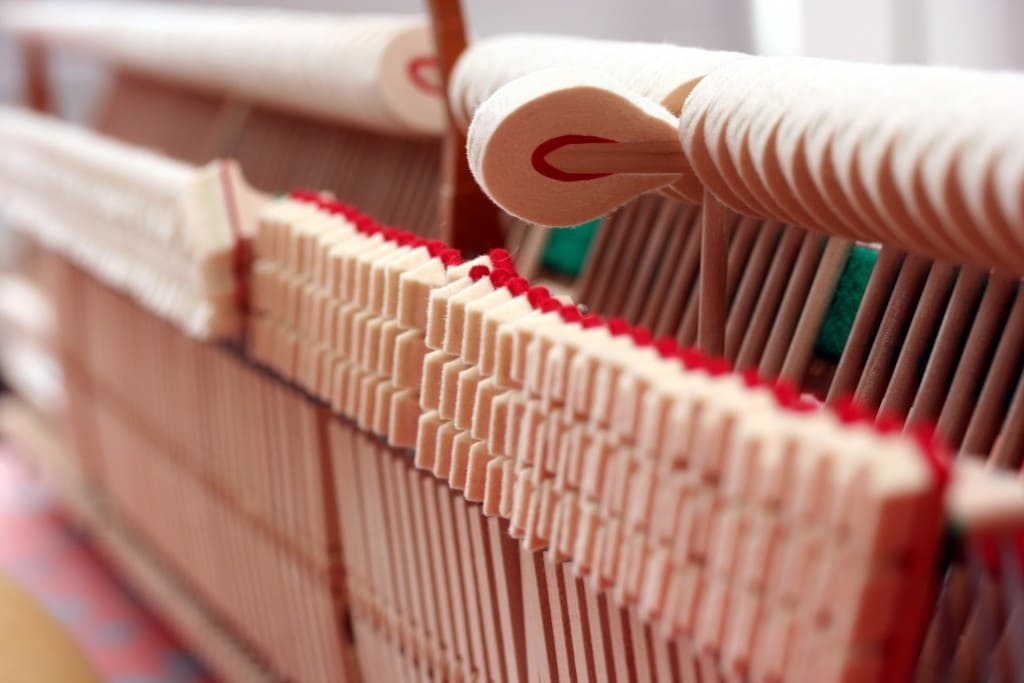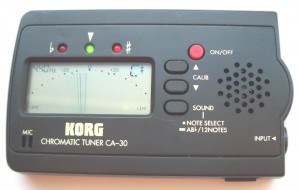Tuning a piano may sound like a very simple task, but in reality it is quite a feat. Each piano has approximately 230 strings with about 200 lbs of tension on each string. Each string is wrapped around a pin which can be turned to tighten or loosen the individual string. It is understandable from common knowledge that tighter the string, higher the note! There is no fixed way to tune a particular piano.
In fact, the best possible frequency of each string of one piano will most definitely be different from another piano. So tuning is more dependent on the trained ears of a musician than a to-do book which teaches you how to tune a piano. It always pays off to remember that no two pianos can ever have the same solution to attaining their best possible sounds.

How often does a piano require tuning?
Some people say their pianos require tuning once in 6 months, while others say they need to fix theirs about once a year. In reality, there is no fixed time duration to tune a piano. It depends on the trained ears to determine when a piano needs to be tuned.
For example, in case of professional performances and recordings it is not uncommon for a piano to be tuned almost twice in a busy week. Piano manufacturers recommend tuning a piano every 3 to 4 months. The close frequency of tunings on a new piano helps stabilize the strings. Once the strings stabilize pianos can do with tuning every 2 to 3 years.
How long does it take to tune a piano?

It mostly depends upon the expertise of the tuner. But it should take no more than 2 hours and no less than one. However if you are looking forward to a pitch-raise followed by tuning it will take you longer than 2 hours.
Is it possible to tune a piano out of tune?
There are primarily many reasons for this. Let us start with the most optimistic ones.
- Pianos are technically tuned to be “out of tune”. The piano keyboard is designed to emanate enharmonic notes. To accommodate the design of the keyboard of a piano and play all the notes so that they sound acceptable the octave is divided into 12 equal parts. This is called equal temperament which produces out of tune intervals.
- Another reason why pianos are tuned “out of tune” is inharmonicity. All pianos have varying degrees of inharmonicity and this is produced by stretching of octaves.
In another scenario, it is actually possible that the piano has been tuned incorrectly. In these situations the piano simply “does not sound right”. Let us take an insight into these situations:
- Many a times tuning requires a musical compromise which leaves some intervals off from their “ideal sounds”. The farther out of tune the strings are at the start, the more unsatisfactory will the results of tuning be. This will be especially true if the piano has seen a dramatic pitch raise before tuning. In this case, the strings with shift ever so slightly in spite of the best efforts of expert tuners.
- Most amateurs expect tuning to be a fixing procedure which can make up for years of negligence. In most cases the harshness of sound acquired over the years require voicing, which is a much detailed procedure and is not included in tuning.
Does using an electronic aid help in tuning?

In most cases using an electronic device to tune a piano helps determine the root cause of the problems. This is especially recommended in case of pianos which have not been tuned for ages. While some strings may have gone flat, others may have gone sharp, all to different degrees. This poses quite a challenge for most tuners.
But then again, if a tuner cannot tune a piano by listening, he or she should possibly find another job! The best possible tuning job is brought out by a perfect blend of talent, art, and science. That being said, the best aural tuning job is complemented by using electronic aids which help in maintaining consistency and performing perfect pitch raises.
What happens if a piano is left unturned for decades?

The longer the periods of negligence, the longer it takes to get the piano into shape. Neglected pianos mostly develop sticky keys. It is not uncommon for such pianos to become abodes of pests as well. The most damage is incurred by the strings which rust and get stuck at multiple friction points. Sudden attempts at tuning may even break the strings.
If a piano is left untuned for ages then a thorough inspection is recommended first. After the inspection and the required replacements, the piano can be tuned with the best efforts of expert aural tuners. It is recommended in these situations to do a follow-up tuning session after about 4-6 months have passed.
Featured Image: Image Courtesy
Love playing the piano! Most of my new music is written on the piano! pic.twitter.com/7LW0ep7eeq
— Joel Adams (@JoelAdamsMusic) February 22, 2016
YET ANOTHER 5-STAR REVIEW https://t.co/w4BGVfjya8 : )
— Prince3EG (@Prince3EG) February 22, 2016
Related Articles:
The life of a piano (tuning) man
Piano technician Bill Schwartz often works alone on darkened stages. When the notes are right, he plays a series of beautiful arpeggios, and visitors who peek in might think they’ve scored a free, private performance. But the piano isn’t his instrument — his ear is.
“I always tell people I’m in the right end of the business, because I don’t play nearly as well as the people I tune for,” he says.
Schwartz packs a lunch and drives to his job from the same Park Ridge home he grew up in. A ring of keys hangs from his belt. He is friendly and modest. And he is one of a corps of Chicago technicians the great pianists rely on so their instruments are just right when they pull up the bench on stage at Chicago’s great concert venues. Via Chicago Tribune
The keys of life: Lexington piano tuner has perfect pitch
ROCKWELL, N.C. (AP) – You see it in the way Roy West cocks his head and points his left ear toward the piano. It’s there as the toothpick rolls back and forth in his mouth. His strong right hand gives it away, when he twists the tuning lever, then eases back to the spot he knows is right.
This is confidence, and when it comes to tuning pianos, West has it. He wakes up in the morning knowing the world is out of tune, and with every piano he works on the rest of day, he restores some resonance and harmony to the order of things. Via Washington Times
How to Tune a Piano
I often find a rather perturbed piano tuning client that has become frustrated by an out of tune piano. The piano has been well cared for and may have even been recently tuned.
Although a piano may become out of tune because of loose tuning pins (the items used for tightening and loosening the strings), that factor, particularly on pianos within fifty years of age, does not often occur.
Below are three common piano tuning issues and tips for how you can resolve them yourself. Via Angie’s List

